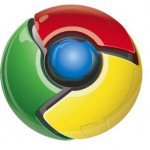Earlier today Google hosted an event for it’s much anticipated new operating system dubbed Chrome OS. This is a very ambitious project that looks to create a lightweight operating system focused on streamlining the average user’s computer experience. Chrome OS consists of ONLY the Google Chrome browser running on a small linux kernel and some device drivers. The idea is that you will start your PC and within seconds you should able to start browsing the web.
The Winners: Google, Consumers, Web Developers
The Losers: Microsoft, PC Manufacturers
Apple: unaffected

Chrome OS is a drastic change from the way we normally think of operating systems and personal computers. For as long as I can remember, computers have always had a hard drive and were fully capable machines without the internet. However, as the internet continues to evolve, we are starting to see more and more reliance on cloud applications and storage. Music streaming services like Pandora are starting to gain major traction, photos are all stored on Facebook or Fickr, and it seems like everyone has a Gmail account. We are spending less time using traditional desktop applications to access our content. And Google knows this. (Google knows everything…) As you might expect, a change this drastic has the potential to really shake up the industry, specifically the netbook market. Let’s take a look at some of the potential winners and losers if Chrome OS becomes widely adopted.
The Winners: Google, Consumers, and Web Developers
Google is clearly a big winner here. They are giving away Chrome OS for free (some sources are even saying “less-than free”) to PC vendors. Google wants PC vendors to install their operating system on all netbooks and other low-end machines. Up to this point, PC vendors have been installing Windows XP or Ubuntu linux on these netbooks. Linux is free for PC vendors to install, but I think they are paying a hefty price to install XP (which most customers prefer). Google is willing to invest up front in the development costs of Chrome OS in hopes of getting millions of users to use their software. Remember, Google is looking to expand their advertising reach and the best way to do that is to get people to run 100% Google software.
Consumers will also win big. Google has been working with PC vendors to create a new generation of netbooks which will feature bigger screens and only solid-state hard drives. I’m happy to hear that the screens will be larger because I am extremely turned off by the current generation of netbooks. Also, since the computer will only need to store a copy of the Chrome OS (probably < 2GB), the solid-state solution will be extremely cheap and provide excellent performance. I would expect the next wave of netbooks to be better quality, and probably even $100+ cheaper.
The last winners that I’d like to highlight are web developers. In order for Chome OS to work, the expectation is that every application that wants to play in this market will be entirely web based. We’re talking HTML5, CSS, and JavaScript. These technologies are plenty capable of providing customers with a rich experience like that of their desktop counterparts. The only exceptions I can see (for now at least) would be high-end software like video/photo editing, 3D modeling, or development software. I would expect the demand for web developers to increase significantly over the next decade as applications continue the shift to the web.
The Losers: Microsoft, PC Manufacturers
Microsoft should be very concerned about Chome OS. Google appears to be directly targeting Microsoft by severely under-cutting their price points by offering a free (or less-than free) alternative to Windows. I would expect many netbook users to choose Chrome OS over Windows 7 or XP for a low-powered netbook. There’s just no way that Windows will perform better on this type of machine. I’m not really sure what Microsoft’s next move will be. I could see them trying to spin Chrome OS as an unreasonable alternative by stating all of things things you “can’t do” such as editing photos/video or serious gaming. Consumers will need to be able to see through all the FUD and realize that netbooks are not designed for this type of computing anyway. I’m exciting to see how things play out when Chome OS is released in a year.
I’m a bit hesitant to call PC Manufacturers as “losers”. Part of me thinks that Chome OS will drive down the cost of these netbooks as they will require smaller hard drives and use the free Chome operating system. Since these companies will be able to sell netbooks for even cheaper than they are now, I would expect them to make even less profit than they are currently making. On the flip side, Google is working directly with some of these manufacturers to create a new generation of netbooks which could attract an entirely new audience. I would expect many more tech people to consider a netbook running a Google operating system compared to Windows XP. If Chome OS is a big hit, it will do wonders for the struggling PC manufacturers.
Finally, I just want to briefly mention Apple since they have been completely left out of this post so far. I don’t expect Apple to be affected by Google’s new operating system. Google is targeting the netbook market and seems to be taking a direct shot at Microsoft. Apple will continue to sell high margin laptops and target power users and students like they have successfully done for years. It’s rumored that the new tablet will be running the iPhone OS and will be Apple’s way of targeting this “secondary computer” market.
If you would like to find out more about Chome OS, here’s a YouTube video of the Google Chrome Demo posted by Google.

Comments